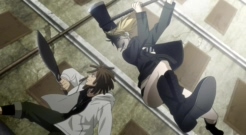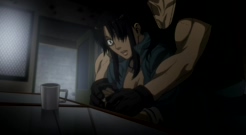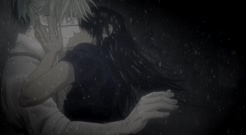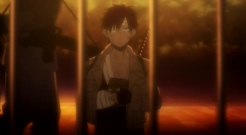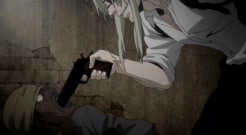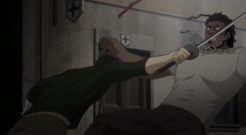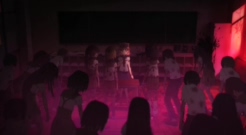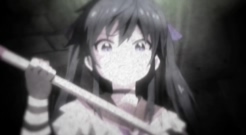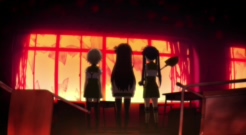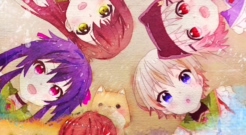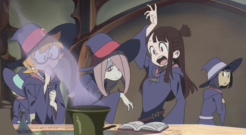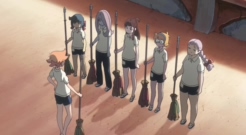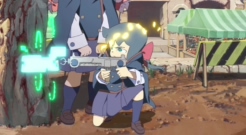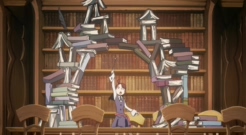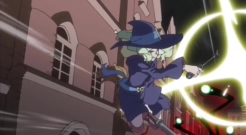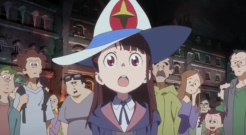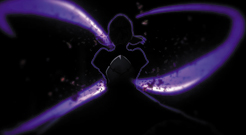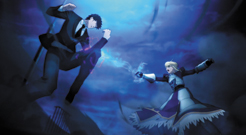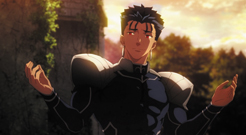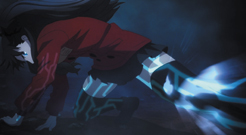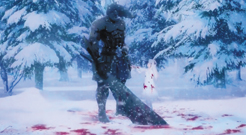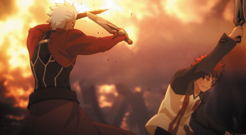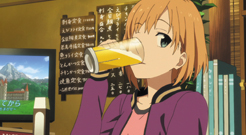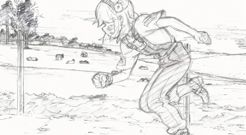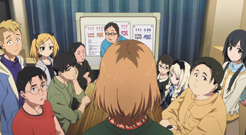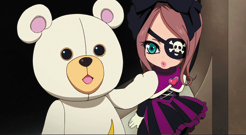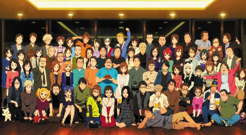Gangsta is an anime with a lot of things going for it. A mature cast, gritty themes, a interesting setting and a trio of main characters who can carry the show. However due to a number of factors it never quite reached its potential. The main trio of characters are unconventional and quite interesting with them being a Prostitute, deaf man and a gigolo. The best moments of the show often come from the quiet times between the characters as their relationship and history make for some pretty engaging conversations. Gangsta really shines in the episodes where characters are reminiscing about the past or just talking to each other but these moments are often pushed to the side as the new super powered psycho shows up for our heroes to fight. Through the main trio are fairly decently fleshed out, the rest of the cast are not quite as developed and viewers can’t really gain an attachment to them due to brevity of their screen time. Which is a major problem as the last few episodes deal with too many side characters to bring a decent conclusion to the story.
One of the biggest issues of the show is the inclusion of superpowered humans known as Twilight’s whom turn the fights of this series into over the top Shounen bouts that contrast the overall more grounded aspects of the rest of the show. It’s an alien element which hijacks the show away from it’s more interesting aspects to focus on ridiculous fight scenes which throw all laws of gravity out the window. The plot was lacking a main goal and instead acted as a setup of characters and setting that lead to no payoff because the series ends unceremoniously at the beginning of a story arc. With little chance of a sequel at this time(Especially now that Mangalobe has gone out of business), this makes the series feel unfinished and nothing more than a poor advertisement to read the manga. Art and animation fluctuate between visually stylish to bad as fights are later hindered with still shots and facial features in certain shots, mostly regarding Alex, are positioned incorrectly.
Ultimately Gangsta is a show that attempted to present style over substance but failed due to lacking animation, a unfocused plot and over the top fight scenes. It’s a show I can’t really recommend due to its unfinished nature and good points being too few in number. As the last TV anime Mangalobe made it’s not too bad a way to go out but there is a sense that this story could have been presented better if picked up by those with a more stable company. In the end Mangalobe went out adapting the hard sell and paid for it. That’s commendable but in the end if you reach for high ambitions without taking into account your limits all that’s gained is a bad product. If Mangalobe is ever revived, I recommend you take this lesson to heart and work within your limits to present the best product you can. A polished, focused anime beats a unfinished ambitious idea every time.

